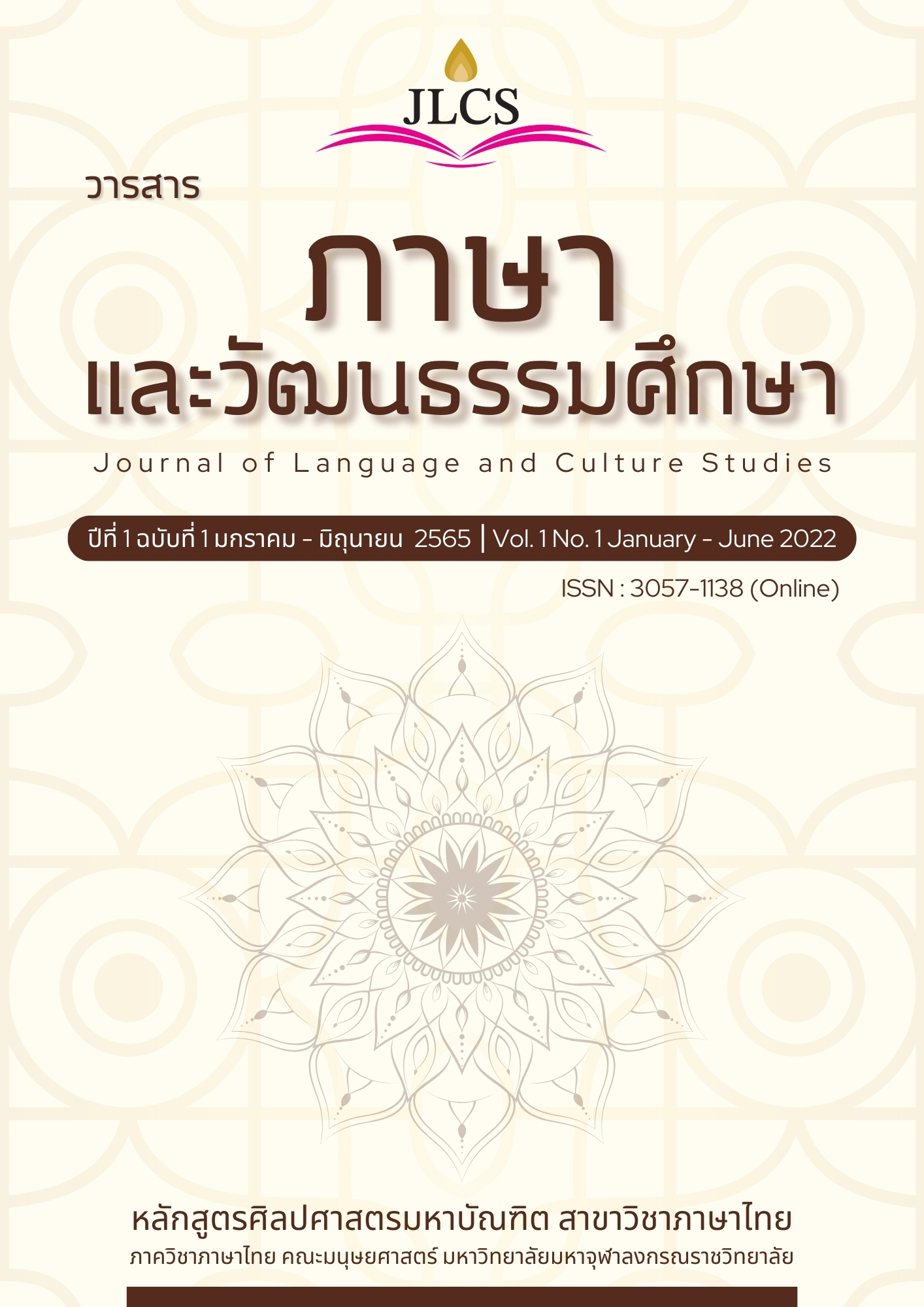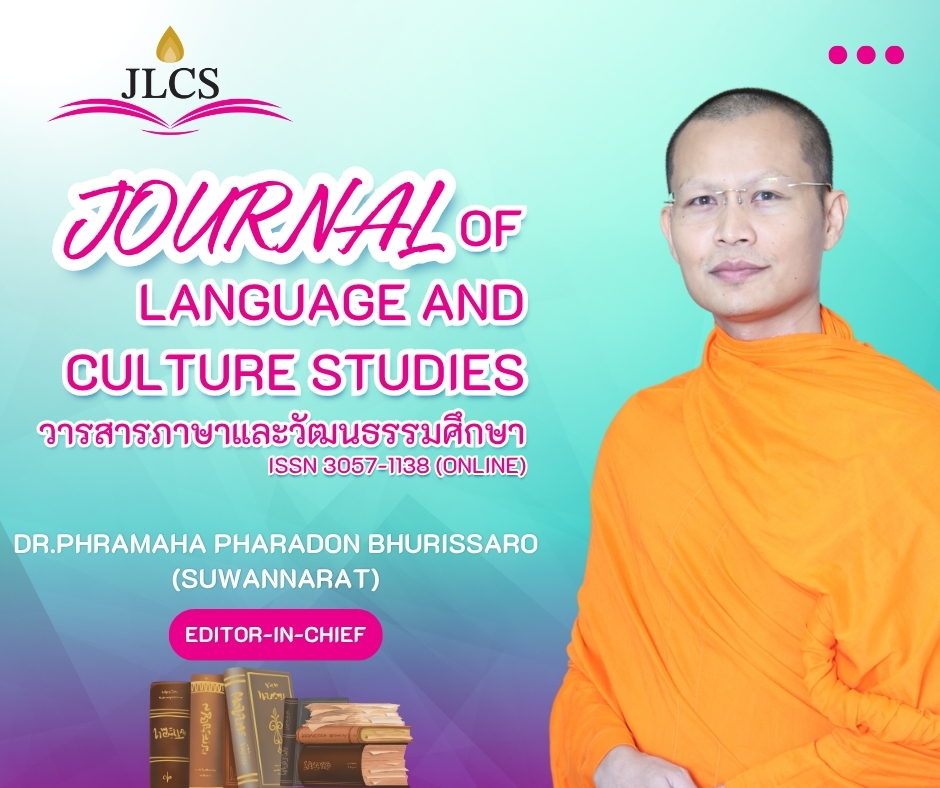AN ANALYSIS OF LANGUAGE USE IN ASSIGNING EPITHETS TO THAI MONKS: SOCIAL AND CULTURAL IMPLICATIONS
Keywords:
Naming, Monks, Language, Society, CultureAbstract
The naming of Thai Buddhist monks reflects the beliefs and values of society through linguistic phenomena. This research aims to analyze the language used in naming monks from sociological and cultural perspectives, employing qualitative analysis of historical and contemporary data. Findings reveal that monk titles exhibit structural and semantic elements linked to social status, religious roles, and communal images. This article enhances understanding of the linguistic and cultural dimensions of monk naming practices in Thailand.
References
เมืองจริต และแสง. (2550). พิธีกรรมในภูมิภา. กรุงเทพบัณญา.
ภาพรกรฮีล เมษสิรินธ์. (2546). ภาษาและวัฒนธรรม. กรุงเทพมหาวิทยาลัย.
Duranti, A. (1997). Linguistic Anthropology. Cambridge University Press.
Geertz, C. (1973). The Interpretation of Cultures. Basic Books.
Halliday, M. A. K. (1978). Language as Social Semiotic: The Social Interpretation of Language and Meaning. Edward Arnold.
Anderson, B. (1983). Imagined Communities: Reflections on the Origin and Spread of Nationalism. Verso.









